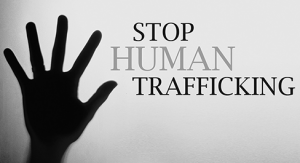Ghana needs national data on human trafficking – FTS
 Mr Bismark Quartey, Ghana’s Programmes Manager for Free The Slaves (FTS), a charitable organisation, has called on government to get data on ‘Trafficked In Persons’ to accelerate the fight against human trafficking.
Mr Bismark Quartey, Ghana’s Programmes Manager for Free The Slaves (FTS), a charitable organisation, has called on government to get data on ‘Trafficked In Persons’ to accelerate the fight against human trafficking.
The data, he said, would place Ghana on a proper track in fighting the menace, which the NGOs would also be guided with.
Mr Quartey made the call during a two-day training programme on Human Trafficking in Kumasi, organised by Free The Slaves (FTS), in partnership with International Needs Ghana, PACODEP, and MIHOSO International.
Journalists from the Ghana News Agency, Joy News, Daily Guide, Ark FM, Ghanaweb, Krachi FM, and Dela Radio among others, who participated, were taken through the Human Trafficking Act and charged to cooperate with the Government and NGOs to combat the menace in Ghana.
Mr Quartey said persons recruited, transported, transferred, harboured through threat or use of force, coercion, abduction, fraud, deception, and abuse of power were referred to as being trafficked.
He said payments or benefit received for exploitation, including exploitation for prostitution, sexual exploitation, forced labour, and removal of organs all came under human trafficking and “modern day slavery.”
Mr Quartey said industries that practiced modern slavery were mostly seen globally in the agriculture, fishing, mining, manufacturing, domestic work, construction, and the hospitality sectors.
The United Nations Global Report on Trafficked In Persons, documented that 40 million of the world’s population were enslaved, he said.
Twenty-one million were in forced labour, 15 million in forced marriages, while four million persons were sexually exploited.
The report indicated that 71 per cent of the 40 million people trafficked were women and girls, and 25 per cent were children.
Africa accounted for 23 per cent of the total figure of people in slavery situations with the highest prevalence rate of 7.6 victims per every 1,000 people.
The report revealed that traffickers made $150 billion per year and that economic globalisation, growing population, extreme poverty, migration, racial and ethnic discrimination were some of the push factors.
Inequality suffered by women and girls and armed conflicts were also part of the reasons for the rise in human trafficking and modern slavery in parts of the world.
“With this figures, Ghana as a nation doesn’t have data on human trafficking cases and I want you, as journalists, to also know what to tell the Government to get national data on this cases,” Mr Quartey said.
“You as journalists can also help curtail the rising nature of trafficking in persons in Ghana and Africa by listening to victims in three steps; hearing what victim says, follow the person with emotion, and take action to help,” he said.
Even though the country was doing well to make sure she came up from the Tier Two Watch List of the UN’s Trafficked In Persons (TIPs) Report, in 2017, it failed to give an actual figure of persons under modern slavery in Ghana.
Mr Joha Braimah, the Free The Slaves Country Director, asked journalists to know the difference between event and issue-oriented stories and know how to develop them, especially the human trafficking related ones, since that was a global challenge.
“When you don’t report the wrong thing right, you will escalate things and your work will rather create another problem for the country,” he said.
Source: GNA
